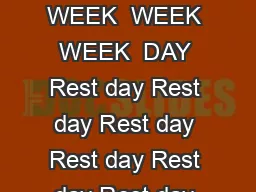PPT-DAY OF RECKONING
Author : sherrill-nordquist | Published Date : 2016-12-08
Malachi 21746 MALACHI 21746 The Question Where is Gods Justice 217 31315 The Charge You Are Hypocrites 3512 MALACHI 21746 Excuses for sin Everybody does it Nobody
Presentation Embed Code
Download Presentation
Download Presentation The PPT/PDF document "DAY OF RECKONING" is the property of its rightful owner. Permission is granted to download and print the materials on this website for personal, non-commercial use only, and to display it on your personal computer provided you do not modify the materials and that you retain all copyright notices contained in the materials. By downloading content from our website, you accept the terms of this agreement.
DAY OF RECKONING: Transcript
Download Rules Of Document
"DAY OF RECKONING"The content belongs to its owner. You may download and print it for personal use, without modification, and keep all copyright notices. By downloading, you agree to these terms.
Related Documents













![[EBOOK]-Opioid Reckoning: Love, Loss, and Redemption in the Rehab State](https://thumbs.docslides.com/956342/ebook-opioid-reckoning-love-loss-and-redemption-in-the-rehab-state.jpg)
![[READ]-A Sin by Any Other Name: Reckoning with Racism and the Heritage of the South](https://thumbs.docslides.com/958368/read-a-sin-by-any-other-name-reckoning-with-racism-and-the-heritage-of-the-south.jpg)